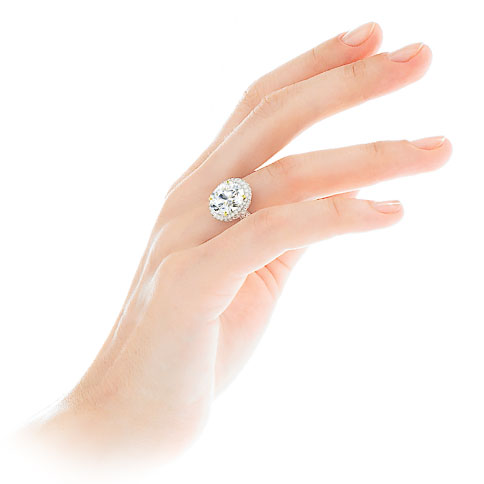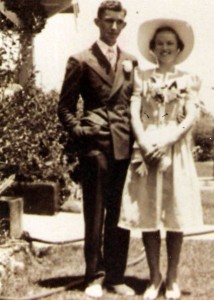(Revised and republished 02/21/2017)
During a divorce I am often asked, “Who gets to keep the rings?”
Couples understand that in a divorce their property is going to get divided. Maybe it will be by settlement or it may be by trial. One of the largest pieces of property in many marriages is often the wedding or engagement ring.
Occasionally, one of the parties may want the rings sold simply to keep it from the other. So who do the rings really belong to? Often, it depends on which ring you are asking about.
The Rule on Gifts
The basic Rule on Gifts is: the giver (or gifter) must transfer personal property voluntarily and without expecting something in return. The gifter transfers personal property simply by delivering it to the recipient. A gift is given ‘voluntarily’ if it is fairly certain there is no force or coercion put on the giver and the recipient didn’t take the gift without permission. The trickier part is whether or not ‘consideration’ (a thing or promise in return) is implied when the rings are given.
Engagement Rings
California doesn’t view engagement rings as gifts. Rather engagement rings are given for the other person’s promise of marriage, the consideration (CA Civil Code section 1590). If the couple actually marries, the recipient (normally the bride) has completed her promise. The engagement ring is now hers. When the parties divorce, the engagement ring, having become the bride’s property before marriage, remains her separate property and wouldn’t be divided as part of the divorce.
If the wedding doesn’t happen, then it who gets the ring depends on who broke the engagement off. If the recipient, she has to return the ring. If it was the gifter, the recipient can keep the ring.
Wedding Rings and Anniversaries
Unfortunately wedding bands and rings bought after the wedding day (anniversary rings, upgraded rings, etc.), aren’t as clear cut as engagement rings. The rules of marital property and conversion of property from one type or another (called “transmutation”) have to be taken into account.
Wedding bands purchased before the wedding day and given at the ceremony are the property of the buyer until the wedding. The spouses aren’t married and their money is separate. At the wedding each buying spouse gives (transfers) a wedding band to the other spouse voluntarily. But is there consideration? Are wedding rings given for a promise to stay married?
Normally, the original wedding bands are treated as an exchange of gifts while the wedding is a separate exchange of promises. This makes sense if we think of couples that can’t afford a wedding ring or the cost of different couples’ rings. If a couple doesn’t have a wedding ring are they not married after the ceremony? That wouldn’t be fair. If one couple can afford a very expensive ring is their promise to stay married stronger than a couple who can only afford an inexpensive band? Also ridiculous.
The treatment of the original wedding bands as gifts isn’t stated that way in the statutes. There is no settled law on the issue. However, if the rings were treated as an exchange for being married that would be a contract that would appear to trade personal servitude or sex for a gift of an asset and would be patently illegal.
Just to muddy the waters further is the exception in the law for gifts between spouses. When jewelry is given as a gift that is meant for the exclusive use of one of the spouses, that is not considered under community property “that is not substantial in value taking into account the circumstances of the marriage”. What this last part means, is that to determine if there is an exception to gifts between spouses, we have to look at the value of the rings in comparison to what the spouses could afford and to their station in life.
Later Purchased Rings
So what about rings that are bought after the wedding day? This often happens at anniversaries or when renewing vows. It can also happen when couples are doing better financially and want to upgrade the original rings.
The purchase of rings or other jewelry during marriage would most likely be from earnings during the marriage. This implies it is community property money. The rings could then be considered community property.
But can the rings be considered a gift from one spouse to the other? California Family law requires that transmutation – the conversion of community property to separate property – requires a writing signed by the gifting spouse. However, we return to that exception which excludes jewelry used solely or principally by the spouse to whom the gift is made and that is not substantial in value.
Therefore, when it comes to rings purchased after the marriage, whether the rings are gifts will be a judgment issue based on if the rings are of “substantial value”, taking into account the rest of the marital circumstances (value and income). The smaller percentage of the total value both at purchase and divorce will be the most likely measuring points.
Seek Help from an Experienced Attorney
Dividing marital property can be a tricky affair. The loss of family heirloom rings and finding a “fair” middle ground can be difficult. Emotions are running high at this time while you are trying to negotiate. A skilled attorney can help work through the issues with you and reduce the contention during this most trying time.
Featured Image: “Aboutgmaxdmdns by Chapter1Design” at wikicommons


